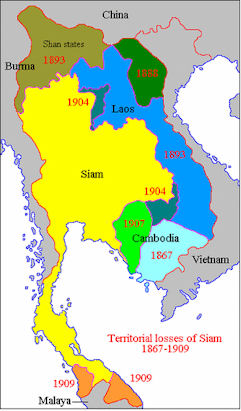

Zitierweise / cite as:
Payer, Alois <1944 - >: Chronik Thailands = กาลานุกรมสยามประเทศไทย. -- Chronik 2001 / B. E. 2544. -- 3. Juli bis Dezember. -- Fassung vom 2017-03-20. -- URL: http://www.payer.de/thailandchronik/chronik2001c.htm
Erstmals publiziert: 2012-10-28
Überarbeitungen: 2017-03-20 [Ergänzungen] ; 2016-12-31 [Ergänzungen] ; 2016-11-07 [Ergänzungen] ; 2016-03-01 [Ergänzungen] ; 2016-02-12 [Ergänzungen] ; 2016-01-24 [Ergänzungen] ; 2016-01-03 [Ergänzungen] ; 2015-09-03 [Ergänzungen] ; 2014-11-03 [Ergänzungen] ; 2014-10-26 [Ergänzungen] ; 2014-10-15 [Ergänzungen] ; 2014-09-25 [Ergänzungen] ; 2014-09-10 [Ergänzungen] ; 2013-11-18 [Ergänzungen] ; 2013-10-06 [Ergänzungen] ; 2013-04-30 [Ergänzungen] ; 2013-04-25 [Teilung des Jahrgangs]; 2013-04-21 [Ergänzungen]; 2013-04-17 [Ergänzungen]; 2013-04-08 [Ergänzungen]; 2013-03-28 [Ergänzungen]; 2013-03-19 [Ergänzungen]; 2013-03-09 [Ergänzungen]; 2013-03-02 [Ergänzungen]; 2013-01-13 [Ergänzungen]; 2012-11-12 [Ergänzungen]
©opyright: Dieser Text steht der Allgemeinheit zur Verfügung. Eine Verwertung in Publikationen, die über übliche Zitate hinausgeht, bedarf der ausdrücklichen Genehmigung des Herausgebers.
Dieser Text ist Teil der Abteilung
Thailand von
Tüpfli's Global Village Library
ช้างตายทั้งตัวเอาใบบัวปิดไม่มิด
|
Gewidmet meiner lieben Frau Margarete Payer die seit unserem ersten Besuch in Thailand 1974 mit mir die Liebe zu den und die Sorge um die Bewohner Thailands teilt. |
|
Bei thailändischen Statistiken muss man mit allen Fehlerquellen rechnen, die in folgendem Werk beschrieben sind:
Die Statistikdiagramme geben also meistens eher qualitative als korrekte quantitative Beziehungen wieder.
|
2001-07
Der Zugang zu Discotheken wird reguliert: Mindestalter 20 Jahre, feste Schließungszeiten.
2001-07-01
Eine private Wachgesellschaft bombt zwischen Juli und Dezember vier Super-Stores, weil die Inhaber der Einzelhandelskette die Wachgesellschaft gewechselt hatte.
2001-07-05
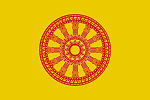
Abb.: Sanitsuda Ekachai (สนิทสุดา เอกชัย)
[Bildquelle: FAO]Bangkok Post: Sanitsuda Ekachai (สนิทสุดา เอกชัย, 1955 - ): "A nun's life has limited appeal"
Kommentar zur minimalen Nachfrage nach Ordination als buddhistische Nonne.
"Now that Sri Lanka has revived female ordination in Theravada Buddhism, one would have thought that nuns in Thailand would jump at the chance to become Bhikkhunis. Wrong. Of the estimated 13,000 nuns here, only Jamnian Rattaburi has decided to seek ordination, making her only the second Thai woman to do so." [Sanitsuda Ekachai (สนิทสุดา เอกชัย) <1955 - >: Keeping the faith : Thai Buddhism at the crossroads. -- Bangkok : Post Books, 2001. -- 322 S. : Ill. ; 23 cm. -- ISBN 974-228-016-9. -- S. 295]
2001-07-05
Aus einem Interview:
"I know two sisters aged eight and twelve years. The traffickers succeeded in convincing the younger one to travel. They took the child with them to the north. Even though she was always accompanied, it is she who carried the drug with her on the way back. While leaving, the traffickers telephoned their contacts in the army or the police to know if the checking was strict. As there was a danger, the trafficker and the little girl halted at a hotel. It is there that the children often first become victims of rape and are infected with AIDS. Back in Klong Toey [คลองเตย], the little girl arrived, covered with gifts, dolls, and toys. The elder sister had only one desire: to also follow this man.
On their return, the traffickers often get rid of the children. They sell them in the brothels of the district. There are ten of them here.
Interview with Mrs. Nong [Projektleiter Duang Prateep Foundation / มูลนิธิดวงประทีป] on 5 July 2001"
[Quelle: Chouvy, Pierre-Arnaud <1971 - > ; Meissonier, Joël <1973 - >: Yaa baa : production, traffic, and consumption of methamphetamine in mainland Southeast Asia. -- Singapore : Singapore Univ. Pr,, 2004. -- 210 S. : Ill. ; 23 cm. -- ISBN 978-9971-69-278-0. -- Originaltitel: Yaa Baa : production, trafic et consommation de méthamphétamine en Asie du Sud-Est continentale (2001). -- S. 74. -- Fair use]
2001-07-13
Bildung der National Human Rights Commission (คณะกรรมการสิทธิมนุษยชนแห่งชาติ).
Abb.: ®Logo
"The Thai National Human Rights Commission (Thai: คณะกรรมการสิทธิมนุษยชนแห่งชาติ; RTGS: Khana Kammakan Sitthi Manutsayachon Haeng Chat; Abrv: NHRC) was established 13 July 2001 as a national human rights institution. Inception
The inception of the Commission came after a clash (known as “Black May” - พฤษภาทมิฬ) between pro-democracy demonstrators and the military in May 1992 which resulted in severe casualties[1]. The Cabinet (คณะรัฐมนตรีไทย) (42: Prem Tinsulanonda - เปรม ติณสูลานนท์ - 3 March 1980 – 30 April 1983) passed a resolution in September the same year, to establish a national mechanism committed to the protection of human rights. The national human rights commission was eventually mandated in Article 199 and 200 of the Constitution adopted in October 1997, and formally constituted in July 2001[2]. From its inception to 31 May 2005, it received a total of 2,148 complaints of which 1,309 had already been investigated, 559 were still in the process of investigation, and 209 were in the process of gathering evidence. These complaints covered not only civil and political rights but also other spheres of rights including economic, social and cultural rights[3]. As for the "clash" that inspired the NHRC, on 16 May 2002, Amnesty International issued a press release noting that ten years later, justice had still not been done[4].
Nevertheless, as a result of its proactive stance in relation to corporate-related human rights abuses, NHRC is widely accepted by the public, and it has apparently been receiving an increasing number of cases in recent years. Many cases are still being resolved but the NHRC remains committed to affording victims of corporate related human rights abuses and access to remedies. The NHRC’s mechanism is easy to understand and is similar to court-based adjudication. The difficulty lies in the lack of enforcement powers and hence in the lack of ability to order remedies if one party defaults and the National Assembly fails to look into the problem. Hence, there is the possibility that the victim may not have access to any remedies and thus greater enforcement powers are needed.
Coup of 2006The NHRC began to experience severe difficulties after the Thai military seized power in the 2006 Thailand coup. The Commission remains in existence but members have not been appointed to replace those whose terms have come to an end. Saneh Chamarik, chairman of the Commission, defended the coup, stating in an interview:
“ I do not think [the coup] is about progression or regression [of democracy], but about problem solving. ” His remark was criticized by Suwit Lertkraimethi, an organizer of the 19 September Network against Coup d'Etat, who noted, "His role is to protect human rights, but his statement showed his approval of human-rights violations." Suwit demanded Saneh's resignation from the NHRC.[6]
AccreditationIt is accredited with "A status" by the International Co-ordinating Committee of National Human Rights Institutions (ICC), and is a member of the regional NHRI network, the Asia Pacific Forum."
[Quelle: http://en.wikipedia.org/wiki/National_Human_Rights_Commission_%28Thailand%29. -- Zugriff am 2012-10-07]
2001-07-14

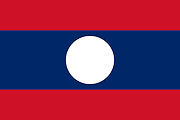
Laut Bangkok Post hat die UWSA (United Wa State Army / 佤邦联合军/ ဝပြည် သွေးစည်းညီညွတ်ရေး တပ်မတော်) 16 Laboratorien zur Produktion von Ya Ba [ยาบ้า] aus Myanmar in Die laotische Provinz Bokeo (ແຂວງບໍ່ແກ້ວ) Verlegt.
Abb.: Lage der Provinz Bokeo (ແຂວງບໍ່ແກ້ວ)
[Bildquelle: CIA. -- Public domain]
2001-07-15

Aus zwei Interviews:
"My Thai friends take loans at 20 per cent from money lenders. However, were they to wait for one month to make their purchases, they could pay without borrowing. But what is important for them is to have a small sum available in case of unforeseen circumstances. They love having a small sum of money, right there, before their eyes. It gives them the impression that they are secure. In Thailand, one must always put aside a little amount of money because one learns the date of the tamboon [ทำบุญ] (a religious donation organized by the monks) only at the last moment. And one must always have money available for the tamboon because during the ceremony, the donors are listed. And one loses face if one has been stingy. A Thai proverb says: "One must always have a second shirt that one can sell to save his face". It means that when friends arrive unexpectedly, one has to face unforeseen expenses. If there is no "second shirt" to sell, one would also lose face as one would have to sell the one that one is wearing. Therefore, the Thais say that it does not pinch to pay one or two baht per day, one hardly feels it. One or two baht are hardly anything at all, even if one takes twice as much time to repay it".
Interview with Bernard Antoine on 15 July 2001"
[Quelle: Chouvy, Pierre-Arnaud <1971 - > ; Meissonier, Joël <1973 - >: Yaa baa : production, traffic, and consumption of methamphetamine in mainland Southeast Asia. -- Singapore : Singapore Univ. Pr,, 2004. -- 210 S. : Ill. ; 23 cm. -- ISBN 978-9971-69-278-0. -- Originaltitel: Yaa Baa : production, trafic et consommation de méthamphétamine en Asie du Sud-Est continentale (2001). -- S. 75. -- Fair use]
"Paradoxically, if while working labourers take only one tablet in the morning and another in the evening, they are tempted to considerably increase their dosage when they are out of work. The unemployed generally look for friends with whom to share their yaa baa [ยาบ้า] Together they forget the humiliation of being poor, which is particularly difficult to do in Thailand where, according to Mrs. Nong, prosperity is by far the main source of social distinction. "Being rich" is a sign of the merit that one has acquired in a previous life. Thus, when one has money, one should consume amply, tip generously, and in general act to display one’s good standing. "In this society, the poor do not have a place. Nothing seems to be within their reach. The media never takes an interest in the inhabitants of Klong Toey [คลองเตย], but they are far more interested in the life of those who live in rich localities"."
[Quelle: Chouvy, Pierre-Arnaud <1971 - > ; Meissonier, Joël <1973 - >: Yaa baa : production, traffic, and consumption of methamphetamine in mainland Southeast Asia. -- Singapore : Singapore Univ. Pr,, 2004. -- 210 S. : Ill. ; 23 cm. -- ISBN 978-9971-69-278-0. -- Originaltitel: Yaa Baa : production, trafic et consommation de méthamphétamine en Asie du Sud-Est continentale (2001). -- S. 76. -- Fair use]
2001-07-18
Feuer zerstört Thailands größtes Druck- und Verlagshaus, Thai Watana Panich Press (บริษัท สำนักพิมพ์ไทยวัฒนาพานิช จำกัด). Das Feuer zerstört die Druckerei und die Lager, vor allem von Schulbüchern.
Abb.: ®Logo
2001-07-23 - 2004-10-20
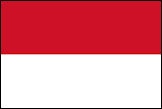
Der Beratende Volkskongress Indonesiens setzt Präsident Abdurrahman Wahid (1940 - 2009) ab. Vizepräsidentin Megawati Sukarnoputri (1947 - ) ist Präsidentin.
Abb.: Der Vorsitzende des Beratenden Volkskongresses gratuliert Megawati Sukarnoputri zur Präsidentschaft, 2001-07-23
[Bildquelle: National Information Agency Republic of Indonesia / Wikipedia. -- Public domain]
2001-07-25
The Nation:
""Police Death Squads Run Riot. Police-backed death squads are executing suspected drug traffickers in the lower Northeast and intend to kill as many as one thousand people this year, the region’s police chief said yesterday."
[Der Chef-Polizist voin Region 4, Lt. Gen. Pichai Sunthornsajjabul, wird zitiert mit:],
"Our target is to send one thousand traffickers to hell this year, to join some 350 before them. [...] If there’s not enough evidence to take legal action drastic measures will be taken by members of the alliance. We have applied legal means, political science and even Buddhism, but the [drug] problem. only seems to be getting worse. Now it’s time to rely on Death Angel. Of course. it's a legally delicate means, but it is the path we have to take to bring peace to society."
2001-07-26
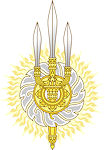
Seine Majestät, der König erhält vom Department of Intellectual Property das thailändische Patent für "Use of pure palm oil as bio-diesel fuel" (การใชนํ้ามันปาล์มกลั่นบริสุทธิ์เปนนํ้ามันเชื้อเพลิงสําหรับเครึ่องยนต์ดีเซล).
2001-07-26
Die Polizei verhaftet in Bangkok 102 Betrüger, darunter 85 Ausländer, die gierige Investoren um ihr Geld bringen.
2001-07-27

Die Fußballer von Manchester United kommen an, um am 27. gegen Thailand zu spielen. Sie gewinnen mit 2 : 1. Thai-Fußballfans sind aus dem Häuschen, am meisten begeistert sie der Kapitän der Engländer, David Beckham (1975 - ).
Abb.: Lässt Thai-Herzen höher schlagen: David Beckham (rechts), 2010
[Bildquelle: Nathan Rupert. -- http://www.flickr.com/photos/nathaninsandiego/5139604661/. -- Zugriff am 2011-12-27. -- Creative Commons Lizenz (Namensnennung, keine kommerzielle Nutzung, keien Bearbeitung)]
2001-07-30

Der Nikkei-Index für 225 führende japanische Aktienwerte erreicht den tiefsten Stand seit 16 Jahren: 11.579,27 Punkte.
Abb.: Nikkei-Index 1970 - 2011
[Bildquelle: Monaneko / Wikipedia. -- GNU FDLicense]
2001-08

Die auf Tigern reitenden Mönche in Wat Pha Luang Ta Bua (วัดป่าหลวงตาบัว), Kanchanaburi (กาญจนบุรี), sind eine Touristenattraktion. Tierschützer haben allerdings Bedenken.
Abb.: Wat Pha Luang Ta Bua (วัดป่าหลวงตาบัว)
[Bildquelle: OpenStreetMap. -- Creative Commons Lizenz (Namensnennung, share alike)]
Abb.: In Wat Pha Luangta Bua (วัดป่าหลวงตาบัว), 2004
[Bildquelle: MichaelJanich / Wikipedia. -- GNU FDLicense]
"Tiger Temple, or Wat Pha Luang Ta Bua, is a Theravada Buddhist temple in western Thailand that was founded in 1994 as a forest temple and sanctuary for wild animals, among them several tigers. Location
The temple is located in the Saiyok district (ไทรโยค) of Thailand's Kanchanaburi (กาญจนบุรี) province, not far from the border with Myanmar, some 38 km (24 mi) north-west of Kanchanaburi along the 323 highway.
The tigersIn 1999, the temple received the first tiger cub, one that had been found by villagers; it died soon after. Later, several tiger cubs were given to the temple, typically when the mothers had been killed by poachers, people whose "pet" tiger were getting too big. As of 2007, over 21 cubs had been born at the temple, and the total number of tigers was about 12 adult tigers and 4 cubs. As of late March 2011, the total number of tigers living at the temple has risen to almost 90.
The Tiger Temple practices a different conservation philosophy than in the west. As a forest monastery, no alcohol is allowed on site. Appropriate clothing must be worn by women, covering their shoulders and knees so as not to offend the celibate monks. No bright coloured [red] clothing, no sleeveless or strapless tops or shorts/mini skirts are allowed either. No shawls or sarongs for the upper or lower body should be worn.
The temple charges a 600 Baht admission fee (March 2011) to raise funds to care for the animals. Day trips also available from Bangkok and the journey takes about 2.5 hours. The temple sees between 300 and 600 visitors each day. There are donation boxes around the temple for those who wish to help support the sanctuary. For a fee, visitors may join in the tigers' morning or evening exercise programme. No more than 20 visitors may do this at a time. The temple staff says it costs US$100 per tiger each day for the their feeding and care. Western staff sell the additional services, although the handlers usually are local Thai women.
Guests can engage in other activities with the tigers. These include bottle feeding tiger cubs, exercising adolescent tigers, bathing tigers, hand-feeding tigers and posing with sleeping adult tigers.
The tigers are washed and handled by Thai monks, international volunteers and the local Thai staff. Once a day, they are walked on leashes to a nearby quarry. Originally they would roam around freely, but with the increase in visitors and the number of tigers, they are chained for safety. The staff closely guide visitors as they greet, sit with, and pet the cats. The staff keep the tigers under control and the abbot will intervene if a tiger becomes agitated. The entry fee goes to feeding the animals, and also to fund building a larger tiger sanctuary which will allow the animals to live in an almost natural environment. Portions of the new sanctuary are already open and inhabited with tigers, but other parts are in construction as they need the right fencing around the moat to keep the tigers from leaving the sanctuary. The temple is reforesting a large amount of land nearby ('Buddhist Park') to possibly release the tigers into the wild in the future.
Because of a lack of managed breeding programmes and publicly available DNA data, the pedigree of the tigers is not known. However, it is presumed they are Indochinese Tigers, except Mek, who is a Bengal Tiger. It is possible that some may be the newly discovered Malayan Tigers, while many probably are cross breeds or hybrids.
CriticismSome claim the Tiger Temple's philosophy for animal conservation is flawed. An organization named Care for the Wild International claimed that based on information collected between 2005 and 2008 the Tiger Temple is involved in clandestine exchange of tigers with the owner of a tiger farm in Laos contravening the Convention on International Trade in Endangered Species and national laws of Thailand and Laos. It claimed it operates as a tiger breeding facility without having a respective license as required under the Thai Wild Animals Reservation and Protection Act of 1992. It also claims animal welfare problems at the Tiger Temple are severe and include poor accommodation, lack of appropriate environments and veterinary care, and physical abuse of the tigers to make them compliant for visiting tourists.
However, most of the claims in the internet, and the information in the report are the same (some think it looks like a deliberate 'sting'), and Care for the Wild was previously not very well known. According to the report Care for the Wild did not find any evidence of the tigers being drugged. After the report, many press turned up at the temple but they were not able to substantiate the claims. Articles that look like they are negative are reporting the publication of the report and are not based on further evidence. The Thai government also investigated the temple again (although they had done so previously) and said that the tigers were well looked after. The temple has also been now given an official permit to breed tigers. It is also possible for any visitor to view the tiger accommodation, including Tiger Island, which is nearly completed.
Since the report by Care for the Wild International, a coalition of 39 prominent conservation groups, including the Humane Society International, the Association of Zoos and Aquariums, the World Society for the Protection of Animals and the World Wide Fund for Nature, have penned a letter to the Director General of National Parks in Thailand under the name 'The International Tiger Coalition.' This letter urges the Director General to take action against the Tiger Temple over its import and export of 12 tigers with Laos, its lack of connection with accredited conservation breeding programmes, and to genetically test the tigers at the Tiger Temple in order to determine their pedigree and value to tiger conservation programmes. It concludes that the 'Temple does not have the facilities, the skills, the relationships with accredited zoos, or even the desire to manage its tigers in an appropriate fashion. Instead, it is motivated both in display of the tigers to tourists and in its illegal trading of tigers purely by profit.'
Another website contains video footage and photograph evidence which lends far more weight to claims of abuse made by Care for The Wild International."
[Quelle: http://en.wikipedia.org/wiki/Tiger_Temple. -- Zugriff am 2011-12-27]
2001-08-01
Neue 500-Baht-Scheine:
Abb.: 500-Baht-Schein 2001
[Bildquelle: th.Wikipedia]
2001-08-02

Abb.: Sanitsuda Ekachai (สนิทสุดา เอกชัย)
[Bildquelle: FAO]Bangkok Post: Sanitsuda Ekachai (สนิทสุดา เอกชัย, 1955 - ): "Clergy steers clear of reform"
Kommentar zum Entwurf eines neuen Sangha-Gesetzes: der Mönchsorden widersetzt sich jeder echten Reform.
"One of the Sangha’s weaknesses is its heavy dependence on state power and nationalism to protect its turf and silence critics. This has encouraged a cry-baby mentality so that the clergy is forever demanding outside help instead of developing self-reliance — one of Buddhism’s main teachings. The draft Sangha Bill maintains this dependency mentality.
The clerical order in Thailand is actually extremely rich, but its management of public donations and temple property is shoddy and shady. Making the system transparent would free a huge pool of money so the Sangha could run its own affairs without any state help. But the new bill won’t do this. Instead, it will ask for state funding and leave temples’ money intact. It is also clear in the draft bill that the Sangha blames the media, not its own failings, for its loss of credibility.
So instead of reform, the Sangha will try to close the public’s eyes and ears by imposing a one year jail term and/or a 20,000 baht fine on anyone who "spreads news" that "damages" Buddhism, the Sangha Council, the Maha Khanissorn and the rest of the clergy.
And since the new law is aimed at protecting the power of the male-dominated Sangha, there is no mention at all about female ordination.
The clergy in the Buddha’s time was based on egalitarianism and respect for each person’s spiritual state. Not power. The Buddha also was open to constructive criticism and advice from lay people. The draft Sangha Bill shows how far the Thai clergy has drifted from the essence of Buddhism."
[Sanitsuda Ekachai (สนิทสุดา เอกชัย) <1955 - >: Keeping the faith : Thai Buddhism at the crossroads. -- Bangkok : Post Books, 2001. -- 322 S. : Ill. ; 23 cm. -- ISBN 974-228-016-9. -- S. 318]
2001-08-03
Das Verfassungsgericht spricht mit 8 : 7 Stimmen Ministerpräsident Thaksin von der Anklage frei, dass er seine Vermögensverhältnisse verschleiert hat. Thaksin hatte Vermögensanteile im Wert von Hunderten von Millionen Baht auf seine Verwandten und Angestellten übertragen.
2001-08-11
Ein Erdrutsch am Khao Kho (เขาค้อ) in Amphoe Lom Sak (หล่มสัก), Provinz Phetchabun (เพชรบูรณ์)), tötet mindesten 122 Personen im Schlaf. Dem Erdrutsch waren schwere Regenfälle vorausgegangen.
Abb.: Lage des Khao Kho (เขาค้อ)
[Bildquelle: OpenStreetMap. -- Creative Commons Lizenz (Namensnennung, share alike)]
Abb.: Lom Sak (หล่มสัก) mit dem Berg Khao Kho (เขาค้อ)
[Bildquelle: ©Google earth. -- Zugriff am 2011-12-27]
2001-08-13

Das Königspaar wohnt der Premiere des Films "The Legend of Suriyothai (สุริโยไท)" bei. Filmemacher Prinz Chatrichalerm Yukol (หม่อมเจ้า ชาตรีเฉลิม ยุคล) hat den Film zum 60. Geburtstag der Königin (12. August) produziert.
Abb.: Plakat
[Bildquelle: th.Wikipedia. -- Fair use]Die Königin glaubt, eine Wiedergeburt von Königin Suriyothai (สมเด็จพระศรีสุริโยทัย) zu sein.
"Sirikit still returned in her dreams to what she believed was her earlier incarnation as a warrior queen. She consulted her own informants who were full of stories about plots to bring down her husband. She shot at cardboard targets, saying bluntly that Buddha sanctioned the destruction of evil. Her targets represented live enemies. She was not squeamish like the executioner who fooled himself that there were no scapegoats behind the targets in the King’s Death Case. Photographs show her with lustrous black hair tied back, bracing herself against the sandbags, her long slim fingers supporting the rifle or curled around the trigger. She looks like a legendary Siamese woman warrior with a white ribbon around her head. These are not publicity pictures. They were snapped by a king deeply in love, and aware of how his wife was giving up so many things she had enjoyed in cosmopolitan Paris for this life of constant anxiety. ‘The king wanted Queen Sirikit to replace him if he died during this period,’ a noblewoman said later. ‘There was a lot of speculation about the succession anyway, and opinion was mostly on the side of the heir to the throne being a male. In any case, she would have to become "he". The ruler has to be a god - not a goddess. As a god, Queen Sirikit would have had the strength to strike fast and hard at enemies.’"
[Quelle: Stevenson, William: The revolutionary king : The true-life sequel of he king and I. -- Paperback ed. [of the ed. 1999]. -- London : Robinson, 2001. -- 280 S. : Ill. ; 20 cm. -- ISBN 1-84119-451-4. -- S. 162]
"The Legend of Suriyothai (สุริโยไท) is a 2001 Thai film directed by Chatrichalerm Yukol (หม่อมเจ้า ชาตรีเฉลิม ยุคล), telling the story of Queen Suriyothai (สมเด็จพระศรีสุริโยทัย), who died in a battle in 1548 (the Burmese–Siamese War of 1548) against Burmese invaders. In the film, Queen Suriyothai takes her battle elephant in front of the Burmese army and sacrifices herself to save the life of her king Maha Chakkraphat (สมเด็จพระมหาจักรพรรดิ) and his kingdom. Plot
The film follows the course of the life of Suriyothai from her adolescence to her death. As Suriyothai is only known from three lines in a chronicle, most of the film relies on an invented story rather than claiming to be actual history. It presents a young woman of minor royal standing who has strong opinions and a great deal of self-determination. She loves Lord Piren, but is promised to Prince Tien, the son of the second king of the realm. In an attempt to escape a marriage she does not want, she runs away but is captured by the principal king who explains the possible problems her marriage to Piren might cause to Siam. For the good of the kingdom, she marries Tien to keep peace in the royal families. From this point on she remains loyal to the man she likes but does not love, but remains strongly independent.
The principal king dies, and Tien's father inherits the throne. A few years later, smallpox makes its first appearance in Siam and the king is stricken with the disease. On his deathbed he extracts a promise of support for his young son from Chai Raja, his nephew, and Tien. Burma invades in the north and Chai Raja assumes the throne in order to protect Siam. He executes the child king, which Tien protests but on Suriyothai's advice accepts Chai Raja as his ruler.
Chai Raja's wife, Queen Jitravadee, dies shortly after giving birth to the heir Yodfa. The king takes a new consort, Srisudachan, and has another son by her. After several years of peace, Chai Raja leaves the capital, Ayutthaya, for a military campaign in the north. Soon after, Srisudachan, descended from the deposed U-Tong dynasty, takes Boonsri Worawongsa, another U-Tong descendant, as a lover and starts plotting to take over the throne.
The king is wounded in battle and comes back to the capital to recuperate, where Srisudachan poisons him and attempts to blame the deed on Tien. Tien saves his own life by becoming a Buddhist monk. Srisudachan proceeds by naming Worawongsa as regent and promptly poisoning young Yodfa, thereby assuming power. Suriyothai then summons her old friend Piren, who was Chai Raja's troop commander, to help set things right. His troops ambush and kill Worawongsa and Srisudachan, and Tien accepts the throne despite his monkhood.
Upon hearing this, Burmese King Hongsa invades again and lays siege to Ayutthaya. In a desperate attempt to boost the morale of their troops, both the un-warlike King Tien and Queen Suriyothai join the battle. The queen is slain, falling in slow motion from the elephant in full uniform with her throat cut.
Production BackgroundThe film was financed by Queen Sirikit (สมเด็จพระนางเจ้าสิริกิติ์ พระบรมราชินีนาถ), who also appointed royal family members to the directorial position (Chatrichalerm) and to the role of the lead actress. Chatrichalerm wrote the screenplay and directed, and Kamla, his wife, designed the costumes and served as a producer. Because of Queen Sirikit's backing of the film, when the script called for a large number of men in the battle scenes, Royal Thai Army (กองทัพบกไทย) and Royal Thai Navy (กองทัพเรือ) personnel were called upon to help make up the thousands of extras required.
Chatrichalerm states that this film was originally the idea of Queen Sirikit. According to Chatrichalerm, the Queen wanted the Thai people to have a better understanding of their history and felt that a motion picture would be a good way to accomplish this.Chatrichalerm and Queen Sirikit mutually agreed to use Suriyothai as their first subject. Documents sent to King John III of Portugal (1521—1557) from Domingos de Seixas, a mercenary in the Ayutthaya Kingdom (อาณาจักรอยุธยา) from 1524 to 1549, were consulted in the making of the film. The film depicts some Portuguese, and their introduction of Early Modern warfare, but the only one with a speaking part depicts a physician called to the deathbed of the poisoned king. A follow-up film on King Naresuan, King Naresuan (ตำนานสมเด็จพระนเรศวรมหาราช) was planned for release in 2007.
Amporn Jirattikorn (อัมพร จิรัฐติกร) argues that other motivations for the film included a fear of foreign influence after the 1997 Asian financial crisis and competition from another historical figure, the sister to King Naresuan. According to Jirattikorn, the film attempts to provide a national hero connected to the current monarchical dynasty, in contrast to other Thai films presenting events of the same era (e.g. Bang Rajan- บางระจัน).
The movie uses many locations and sites within Thailand as its sets and with its massive cast and expensive production richly displays life in the 16th century. The battle scenes employed thousands of extras and there are hundreds of real elephants used as moving battle platforms. It took three years to shoot. It is rumored that the film cost between 8 and 20 million US dollars, making it the most expensive Thai film ever made. However, due to the involvement of the Thai Royal Family, any figure is hard to substantiate. Additionally, the royal family’s association with this motion picture allowed filming in locations that would have been difficult or even impossible for any other director to access.
Alternative versionsWhen the film was released on August 12, 2001 in Thailand, it was simply titled Suriyothai and had a running time of 185 minutes. This is pared down quite a bit from its intended eight-hour length. A five-hour version exists in a DVD box-set released in Thailand.
In 2003, the film was released in the United States, with a running time of 142 minutes. This version was edited by Francis Ford Coppola. The US release by Sony Pictures Classics was entitled Francis Ford Coppola Presents: The Legend of Suriyothai. Some critics argue that the original Thai release was the better presentation of the film, with still others even preferring the five-hour DVD set, which does have English subtitles.
Cast Casting notesThe film stars another Thai royal, Piyapas Bhirombhakdi (หม่อมหลวง ปิยาภัสร์ ภิรมย์ภักดี), as Queen Sri Suriyothai. She is a royal descendant, carrying the title M.L., or Mom Luang.
Thai pop star Mai Charoenpura (ใหม่ เจริญปุระ) is among the highlighted performers, portraying the scheming Lady Srisudachan. Other cast members include Sarunyu Wongkrachang (ศรัณยู วงศ์กระจ่าง) as Prince Thien, Chatchai Plengpanich (ฉัตรชัย เปล่งพานิช) as Lord Piren and Johnny Anfone (จอนนี่ แอนโฟเน่) as Lord Worawongsa.
Numerous other actors and actresses from Thai film history appear, including action-movie veteran Sombat Metanee (สมบัติ เมทะนี) and Sorapong Chatree (สรพงษ์ ชาตรี), who appeared in many of Chatrichalerm's films in the 1970s and 1980s.
Partial cast listing[Quelle: http://en.wikipedia.org/wiki/The_Legend_of_Suriyothai. -- Zugriff am 2011-12-27]
- ML Piyapas Bhirombhakdi (หม่อมหลวง ปิยาภัสร์ ภิรมย์ภักดี) as Queen Suriyothai
- Sarunyu Wongkrachang (ศรัณยู วงศ์กระจ่าง) as King Maha Chakkraphat (Prince Thien Rajah)
- Chatchai Plengpanich (ฉัตรชัย เปล่งพานิช) as Lord Pirenthorathep
- Johnny Anfone (จอนนี่ แอนโฟเน่) as Lord Worawongsa
- Mai Charoenpura (ใหม่ เจริญปุระ) as Lady Srisudachan
- Sinjai Plengpanich as Lady Srichulalak
- Sorapong Chatree (สรพงษ์ ชาตรี) as Viscount Rajseneha
- Sombat Metanee (สมบัติ เมทะนี) as Lord Minyesihatu
- Alif Silpachai as Lord Abhished
- Pongpat Wachirabunjong (พงษ์พัฒน์ วชิรบรรจง) as King Chai Raja
- Phimonrat Phisarayabud as Young Suriyothai
- Amphol Lampoon (อำพล ลำพูน) as Lord Intarathep"

Als Reaktion auf den Film veröffentlicht Ma Thin Win in der birmanischen Zeitung The New Light of Myanmar Artikel gegen König Naresuan [สมเด็จพระนเรศวรมหาราช, 1555 - 1605]
"The representation of the Burmese in another historical film drama, the 2002 Suriyothai, supposedly inspired by a dream of the Queen, is little better. In a response that same year. Burmese academic Ma Thin Win. presumably with the approval of the Burmese government, published a series of articles in The New Light of Myanmar critical of the sixteenth- century Thai king Naresuan [สมเด็จพระนเรศวรมหาราช, 1555 - 1605] . who is credited with saving the Thai "nation" from Burmese occupation. For several days Thai army radio stations broadcast a barrage of anti-Burmese commentary, even accusing the regime of slandering the Thai monarchy. The incident was only resolved after the Prime Minister and Foreign Minister were forced to intervene." [Quelle: Jory, Patrick: Problems in contemporary Thai nationalist historiography. -- In: Kyoto Review of Southeast Asisa. -- 3 (2003-03). -- Online: https://www.academia.edu/7076748/_Problems_in_Contemporary_Thai_Nationalist_Historiography_. -- Zugriff am 2016-02-12. -- Fair use]
2001-08-16
Das Thai Medical Council (แพทยสภา) bemüht sich, eine Reform des Abtreibungsgesetzes auf den Weg zu bringen.
Abb.: Sanitsuda Ekachai (สนิทสุดา เอกชัย)
[Bildquelle: FAO]Bangkok Post: Sanitsuda Ekachai (สนิทสุดา เอกชัย, 1955 - ) unterstützt das Medical Council:
"Although the Council must be credited with putting the subject of abortions back on the table, its proposal shows its primary aim is to protect doctors. Not their female patients. It treats women as dependents who cannot think for themselves. It assumes that women with troubled or unplanned pregnancies have husbands or parents ever ready to give them their support and approve an abortion.. . Health authorities do not understand that what they consider ‘normal’ is actually a middle class minority phenomenon. What is really ‘normal’ is pregnancies out of wedlock, failures of family planning, broken homes, wife-beating, irresponsible husbands, single motherhood and plain old poverty." [Zitiert in: Whittaker, Andrea <1967 - >: Abortion, sin, and the state in Thailand. -- London : RoutledgeCurzon, 2004. -- 189 S. : Ill. ; 25 cm. -- ISBN 041533652X. -- S. 60]
2001-08-17
Die Boulevardpresse unterstützt die Gegner einer Reform des Abtreibungsrechts.
Abb.: Karikatur in der Zeitung Thai Rath [ไทยรัฐ]: ein verzewifelter Gesundheitsminister schaut auf zwei schwangere Frauen. Die Babys in ihrem Bauch sind wegen der drohenden Abtreibung besorgt
[Bildquelle: Whittaker, Andrea <1967 - >: Abortion, sin, and the state in Thailand. -- London : RoutledgeCurzon, 2004. -- 189 S. : Ill. ; 25 cm. -- ISBN 041533652X. -- S. 61]
2001-08-19
Konferenz der "Group of 77" (G 77) in Teheran (تهران) (Iran).
Abb.: Lage von Teheran (تهران) (Iran)
[Bildquelle: OpenStreetMap. -- Creative Commons Lizenz (Namensnennung, share alike)]
Abb.: Mitgliedsländer der G 77
[Bildquelle: St. Krekeler / Wikipedia. -- Creative Commons Lizenz (Namensnennung, share alike)]
"Die Gruppe der 77 (G 77) ist ein loser Zusammenschluss von Staaten, die überwiegend zu den Dritte-Welt-Ländern gezählt werden. Die Vereinigung wurde 1964 im Verlauf der ersten Welthandelskonferenz (UNCTAD) gegründet und hat mittlerweile 130 Mitglieder.
Aus dem losen Zusammenschluss folgt eine relativ schwache Institutionalisierung: Ein jährlich stattfindendes Ministertreffen in New York fasst die Grundsatzbeschlüsse, die von einem Koordinierungsausschuss an regionale Untergruppen in Genf, Nairobi, Paris, Rom und Wien weitergegeben werden.
Hauptziel der G 77 ist es, die Position der Entwicklungsländer auf dem Weltmarkt zu verbessern. Darum koordiniert sie die Positionen und Forderungen der Mitglieder, um auf den Welthandelskonferenzen eine stärkere Verhandlungsposition zu erreichen.
Die Gruppe verfasst gemeinsame Erklärungen zu entwicklungspolitischen und weltwirtschaftlichen Themen wie die „Charta der wirtschaftlichen Rechte der Dritten Welt“ und startet eigene handels- und wirtschaftspolitische Programme, z. B. das „Global System of Trade Preferences Among Developing Countries“ (GSTP)."
[Quelle: http://de.wikipedia.org/wiki/Gruppe_77. -- Zugriff am 2012-01-01]
2001-08-21

Bangkok: Festnahme des US-Keyboardisten Eric Franklin Rosser (1952 - ).
"The Federal Bureau of Investigation today announced the arrest of FBI Ten Most Wanted Fugitive, Eric Franklin Rosser. He was taken into custody on the morning of August 21, 2001, at a business located in Bangkok, Thailand. Members of the Crime Suppression Bureau of the Thai National Police, in cooperation with the FBI's Legal Attaché Office in Bangkok, Thailand, participated in the arrest. This apprehension was made possible after law enforcement authorities were given information which was obtained through a viewer of the television program "America's Most Wanted: America Fights Back." The viewer's tip led authorities to believe that Rosser was in the area and, after surveillance was initiated, Rosser was seen walking on a city street and then entering a building. Law enforcement authorities followed Rosser into the building and proceeded to place him in custody. This is the fourteenth time that the cooperative efforts of law enforcement officials and "America's Most Wanted: America Fights Back" has led to the apprehension of a Top Ten Fugitive.
Rosser was wanted for his alleged involvement in numerous offenses, including the production of a videotape in Thailand which depicted sexually explicit conduct between himself and an 11-year-old female child. Rosser later distributed that videotape to a Bloomington, Indiana resident. He also allegedly conspired to transport, distribute, and receive videotapes, photographs, and magazines containing child pornography involving female children between the ages of nine and eleven years. Some of these photographs and visual depictions were placed on the Internet as a direct result of being smuggled, allegedly by Rosser, from the United States to Thailand.Rosser was indicted on March 21, 2000, in the Southern District of Indiana, and charged with the production, distribution, receipt, and transportation of child pornography. He was also charged with conspiracy to transport, ship, distribute, and receive child pornography. As an admitted pedophile, Rosser was considered dangerous, especially to children.
Eric Franklin Rosser was placed on the FBI's "Ten Most Wanted Fugitives" list on December 27, 2000. He was the 460th person to be placed on the list, which began in 1950. Since then, 436 fugitives have been apprehended or located, 139 of them as a result of citizen assistance."
[Quelle: https://www.fbi.gov/news/pressrel/press-releases/fbi-top-ten-most-wanted-fugitive-eric-franklin-rosser-captured. -- Zugriff am 2016-01-24]
2001-08-27
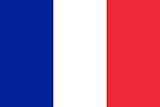
Es erscheint:
Houellebecq, Michel <1956 - >: Plateforme : roman. -- Paris : Flammarion : 2011. -- 370 S. : 21 cm.
Abb.: Einbandtitel
"Plattform ist ein 2001 erschienener Roman des französischen Schriftstellers Michel Houellebecq. Wie in den vorigen Romanen Houellebecqs ist das Thema in Plattform die verzweifelte Suche eines frustrierten Protagonisten nach Glück und sexueller Erfüllung – hier vor dem Hintergrund des Sextourismus. Houellebecqs dritter Roman wurde wiederum kontrovers rezipiert, die Literaturkritik bewertete ihn teils als „prophetisch“, teils als „sexistisch und religionsfeindlich“ Handlung
Der 40-jährige Michel arbeitet als Beamter im Pariser Kulturministerium. Tatsächlich haben Kultur und Kunst keine Bedeutung für sein Leben. Seine Freizeit verbringt er damit, Unterhaltungssendungen im Fernsehen und Peepshows anzuschauen bzw. die Dienste von Prostituierten in Anspruch zu nehmen.
Als sein ungeliebter Vater bei einem Streit von einem Moslem erschlagen wird, weil er mit dessen Schwester ein Verhältnis hatte, gibt sich Michel für einen Moment dem Gedanken der Blutrache hin. Er erbt schließlich eine nicht unbeträchtliche Summe, sowie Haus und Auto seines Vaters, und fliegt nach Thailand, um sich, den Rat seiner Kollegin Marie-Jeanne befolgend, zu erholen. Dort verkehrt er ebenfalls mit Prostituierten – und berichtet seinen Mitreisenden in erstaunlicher Offenheit davon. Zwar beginnt er auch, sich für die 27-jährige Französin Valérie zu interessieren. Doch der resignierte Einzelgänger Michel hat sich von seinen Mitmenschen schon stark entfremdet und leidet unter Bindungsängsten. Der Gedanke an eine Heirat bereitet ihm größere Bauchschmerzen, als der an eine Beerdigung.
Als sich Michel und Valérie gleich nach ihrer Rückkehr in Paris wieder treffen, schlafen sie miteinander – und tun dies das folgende Jahr weiter sehr häufig und intensiv. Vor allem die – mitunter deutlich geschilderte – körperliche Leidenschaft verbindet die beiden zunächst. Schnell verlieben sie sich ineinander und ziehen zusammen. Valérie – so erfährt Michel erst in Paris – ist eine erfolgreiche Touristikmanagerin. Zusammen mit ihrem Chef Jean-Yves soll sie eine defizitäre Kette von Urlaubsressorts wieder zum Erfolg führen.
Zur Probe besuchen Michel, Valérie und Jean-Yves einen der Urlaubsclubs auf Kuba. Michel und Valérie leben sich sexuell sowohl bei einer ménage à trois mit einem Zimmermädchen, als auch mit einem anderen Pärchen aus. Jean-Yves vergnügt sich mit einer Prostituierten. Nach Michels kritischer Analyse der modernen zivilisierten Gesellschaft, der es an nichts fehlt und die trotzdem oder eben darum keine sexuelle Befriedigung findet, unterbreitet er Jean-Yves einen Vorschlag. Man müsste einen aus dem Katalog buchbaren Sex-Club-Urlaub anbieten.
Zusammen mit Valérie macht sich Jean-Yves an die Realisierung der Idee und kann den deutschen Touristikkonzern TUI von seinem neuen Konzept überzeugen. Sogar die hoch gesteckten Erwartungen, die Jean-Yves und Valérie haben, werden von der tatsächlichen Nachfrage nach ihrem Sex-Club-Urlaub noch überboten.
Die drei reisen zur Eröffnung eines neuen Ressorts ins thailändische Krabi (กระบี่). Sie entscheiden, für immer in Krabi bleiben zu wollen. Michel, der noch vor einem Jahr zu lebenslanger Frustration und Depression verdammt schien, glaubt endlich glücklich zu sein.
Doch durch einen islam2001-09istischen Terroranschlag auf die „sündige“ Ferienanlage wird das Paar jäh aus seinen Träumen gerissen. Valérie stirbt, Michel hingegen überlebt das Attentat völlig unbeschadet. Psychisch verkraftet er Valéries Verlust nicht. Nach mehrmonatigen Aufenthalten in Krankenhäusern und psychiatrischen Anstalten wird er entlassen. Michel reist zurück nach Thailand und lässt sich in Pattaya (พัทยา), der Hauptstadt des Sextourismus in Asien, nieder. Das Glück mit Valérie bleibt für ihn eine Ausnahmeerscheinung, für die er keine Erklärung findet. Was nütze ihm, den Rest (des Lebens) verstanden zu haben, wenn er die Liebe nicht verstanden habe: „Et si je n'ai pas compris l'amour, à quoi me sert d'avoir compris le reste?“.
Ohne jeden Rest von Lebenswillen schreibt er seine Geschichte nieder – und wartet auf den Tod.
EinordnungHouellebecq knüpft in Plattform an die in Ausweitung der Kampfzone und Elementarteilchen entwickelte provokante These vom Sex als Ware in der postmodernen Gesellschaft an.[2] Während die Lösung für die unerträgliche Konkurrenzsituation auf dem sexuellen Markt in Elementarteilchen die Abschaffung der Sexualität durch eine eugenische Reproduktionsmedizin ist, wird in Plattform ein organisierter Sextourismus entworfen, der die sexuelle Erfüllung des Einzelnen von der für Houellebecqs Figuren meist deprimierenden Abhängigkeit von Aussehen und Charakter frei macht.
Wie in Houellebecqs beiden vorigen Romanen äußert der Protagonist in Plattform oft streitbare Ansichten zu gesellschaftlich aktuellen Themen und Konflikten, hinter der ungehobelten Provokation ist jedoch auch dieser Roman durchsetzt mit intertextuellen Anspielungen und Verweisen auf Soziologie, Philosophie und Literaturgeschichte.[3] Noch mehr als zuvor ergeht sich Houellebecq in Plattform in der ausgiebigen und realistischen bis naturalistischen Beschreibung sexueller Handlungen, die meist weniger zärtlichen als pornografischen Charakter haben."
[Quelle: http://de.wikipedia.org/wiki/Plattform_%28Roman%29. -- Zugriff am 2013-04-30]
2001-08-28
Der Innenminister greift durch gegen illegalen Sex, Drogen und Saufen:
- Bars und Nachtclubs müssen um 2:00 schließen
- In Bars werden Urin-Proben gesammelt und auf Drogen getestet
Bangkoks Mittelschicht applaudiert.
2001-09

Prinzessin Sirindhorn (มหาจักรีสิรินธร, 1955 - ) eröffnet in Siam Discovery Center (สยามดิสคัฟเวอรี่เซ็นเตอร์), Bangkok den ersten Phufa-Shop (ร้านภูฟ้า). Bis 2012 sind es 17 Geschäfte, davon 16 in Bangkok in besten Lagen. Der Name stammt von Phu Fa (ภูฟ้า), Amphoe Bo Kluea (บ่อเกลือ)
Abb.: ®Logo
Abb.: Lage von Phu Fa (ภูฟ้า)
[Bildquelle: OpenStreetMap. -- Creative Commons Lizenz (Namensnennung, share alike)]
Abb.: Produkte der Phufa-Shops, 2009
[Bildquelle: kitty chirapongse. -- http://www.flickr.com/photos/gnarlykitty/4141191284/. -- Zugriff am 2014-11-03. -- Creative Commons Lizenz (Namensnennung, keine kommerzielle Nutzung, keine Bearbeitung)]
Abb.: Produkte der Phufa-Shops, 2009
[Bildquelle: kitty chirapongse. -- http://www.flickr.com/photos/gnarlykitty/4140429575/. -- Zugriff am 2014-11-03. -- Creative Commons Lizenz (Namensnennung, keine kommerzielle Nutzung, keine Bearbeitung)]
"Enriching people's livelihoods 2/04/2012
Sirinya Wattanasukchai
The Phufa shop [ร้านภูฟ้า], an initiative of HRH Princess Maha Chakri Sirindhorn, is more than just a store. It's a connection that links city people to those in the rural areas.
Well known as an outlet for quality handicraft goods produced by local people in various provinces, Phufa is doing thriving business.
Over the years, Phufa has expanded rapidly. From its first branch at Siam Discovery [สยามดิสคัฟเวอรี่เซ็นเตอร์], which opened in September 2001, the store now has 17 branches altogether; 16 branches in the city, mostly in good, business areas, and one branch, Phufa Treasure Trove [ภูฟ้าผสมผสาน], on the fourth floor of Siam Paragon [สยามพารากอน], which combines a coffee corner and a temporary exhibition (that is changed twice a year).
Part of the Products of the Occupational Incentive Project, which is operated under the concept of sustainability, Phufa shop aims to increase the income of the villagers, mostly farmers, in remote areas, who make use of local materials, as well as expertise and local wisdom, allowing city people to buy handicraft goods that can be used in their everyday life at reasonable prices. The uniqueness of these products, particularly the handicraft items, is that most maintain originality in both design and colour. Also, some products come from remote areas that are not accessible to tourists.
Apart from handicrafts, there are many utility items, including T-shirts, polo shirts, notebooks, and mugs bearing drawings by the princess, who constantly changes the design. Cooked food prepared by court officials draw a number of customers, as well.
Before the opening of Phufa shop, city people could buy these handicraft products only once a year during the Red Cross Fair, which apparently could not satisfy the growing demand, according to Khunying Suchada Kiranandana [คุณหญิง สุชาดา กีระนันทน์, 1946 - ], chairperson of the Operation Committee of Phufa Shop.
She also noted that the Phufa project adds labour cost to each handicraft item. And this makes it different from typical handicraft sales, which merely feature the cost of materials while the makers receive almost nothing in return.
Each year, these simple products have generated an average extra income of 3,000 baht to each villager who contributes to making the handicrafts and food products for Phufa shop.
While the handicraft items maintain their original form and cultural designs, the food products are processed to increase their value."[Quelle: http://www.bangkokpost.com/learning/learning-from-news/287124/the-phufa-shop-of-hrh-princess-maha-chakri-sirindhorn. -- Zugriff am 2014-11-03. -- Fair use]
2001-09

Dr. Chatsumarn Kabilsingh (ฉัตรสุมาลย์ กบิลสิงห์, 1944 - ) wird in Sri Lanka in der Theravadatradition zur sāmaṇeri (Novizin) ordiniert. Ein Teil des thailändischen buddhistischen Establishments "is not amused", obwohl alles nach buddhistischem Ordensrecht vollzogen ist.
Abb.: Lage von Sri Lanka
[Bildquelle: OpenStreetMap. -- Creative Commons Lizenz (Namensnennung, share alike)]
Abb.: Dhammananda Bhikkhuni (ภิกษุณีธัมมนันทา), 2009
[Bildquelle: Gakuro / Wikipedia. -- GNU FDLicense]
"Dhammananda Bhikkhuni (Thai: ภิกษุณีธัมมนันทา, Aussprache: [pʰík-sù-niː tʰam-má-nan taː]; * 6. Oktober 1944 in Bangkok) ist die erste voll ordinierte Nonne (Bhikkhuni) des Theravada-Buddhismus in Thailand. Geboren 1944 als Chatsumarn Kabilsingh (Thai: รศ.ดร. ฉัตรสุมาลย์ กบิลสิงห์), erhielt sie ihre Vollordination in Sri Lanka 2003 und leitet seit dem Tod ihrer Mutter im gleichen Jahr das einzige Nonnenkloster Wat Songdhammakalyani (Thai: วัดทรงธรรมกัลยาณี) in Nakhon Pathom (นครปฐม) und wird von ihren Anhängern 'Luang Mae' (หลวงแม่) genannt. Sie hatte sich kurz nach ihrer Pensionierung als Professorin der Thammasat-Universität (มหาวิทยาลัยธรรมศาสตร์ ) in Bangkok entschlossen, buddhistische Nonne zu werden. Leben
Chatsumarn Kabilsingh wurde 1944 dem Ehepaar Frau Voramai Kabilsingh (Thai: นางวรมัย กบิลสิงห์) und Herrn Kokiat Satsen (Thai: นายก่อเกียรติ ษัฏเสน) geboren. Ihr Vater war Parlamentsabgeordneter aus der südlichen Provinz Trang (ตรัง). Ihre Mutter Voramai war Lehrerin, Journalistin und Schriftstellerin und ließ sich 1956 als Mae Chi (แม่ชี) ordinieren und war schließlich die erste Frau in Thailand, die 1971 in Taiwan eine volle Nonnenordination erhielt. Sie verwandelte ihr Haus in einen Tempel, in dem auch ihre Tochter Chatsumarn aufwuchs. Nach ihrer Schulausbildung studierte Chatsumarn Kabilsingh in Indien und Kanada und schloss mit einem Doktorat (Ph.D.) in buddhistischen Studien an der Magadh-Universität in Bodhgaya (बोधगया) ab. Sie war verheiratet und 27 Jahre lang als Professorin für Philosophie und Religion der Thammasat-Universität in Bangkok tätig. Als ihre drei Söhne erwachsen waren und sie 2000 als Professorin emeritierte, folgte sie dem Weg ihrer Mutter und strebte die Ordination als buddhistische Nonne an. 2001 erhielt sie in Sri Lanka ihre erste Ordination und wurde 2003 als erste Frau in Thailand eine vollordinierte Bhikkhuni der Theravada Tradition. Über die Widerstände und Anfeindungen seitens des konservativen Mönchs-Establishments und der damit eng verflochtenen Regierungsstellen berichtet sie im April 2005 auf der „International Conference on Thai Studies“ Dr. Chatsumarn Kabilsingh ist Autorin und Übersetzerin zahlreicher Bücher und Artikel über Buddhismus in Asien, Buddhismus und Frauen, sowie Buddhismus und Ökologie.
WirkenDhammananda Bhikkhuni ist eine Pionierin für die Frauenrechte in Thailand, insbesondere was das Recht der Frauen auf höhere Nonnenordination und Bildung betrifft. Sie gilt auch als Verfechterin eines Engagierten Buddhismus. 1984 beginnt sie mit der Publikation von „Yasodhara“, einem Journal über Aktivitäten buddhistischer Frauen. 1987 ist sie Mitbegründerin der internationalen buddhistischen Frauenorganisation Sakyadhita, deren ersten Kongress sie 1991 in Bangkok organisiert. Dhammananda Bhikkhuni und ihre Arbeit wird von einigen aufgeschlossenen Mönchen in Thailand, von prominenten Vertretern des Engagierten Buddhismus, wie Sulak Sivaraksa (สุลักษณ์ ศิวรักษ์) und von buddhistischen Feministinnen, wie Rita Gross und anderen unterstützt. 2005 wurde sie für den Friedensnobelpreis nominiert.
Werke (Auswahl)
- A Comparative Study of Bhikkhunã Pàtimokkha. Chaukhambha Orientalia: India, 1981.
- Thai Women in Buddhism.Berkeley, CA: Parallax Press, 1991.
- Women in Buddhism: Questions and Answers.First published 1998. ISBN: 9745726079; Als E-Book: [1]
- The Structural Violence Against Women. Nakhonpathom 2005."
[Quelle: http://de.wikipedia.org/wiki/Dhammananda_Bhikkhuni. -- Zugriff am 2011-12-28]
2001-09
Der Hip-Hop-Sänger und Rapper Dajim (ดาจิม, 1977 - ) wird wegen Aufmüpfigkeit verhaftet.
Künstlerlink auf Spotify:
URI:
spotify:artist:7eZuAiv2Rh0uxfT9jNCjkw
URL:
https://open.spotify.com/artist/7eZuAiv2Rh0uxfT9jNCjkw
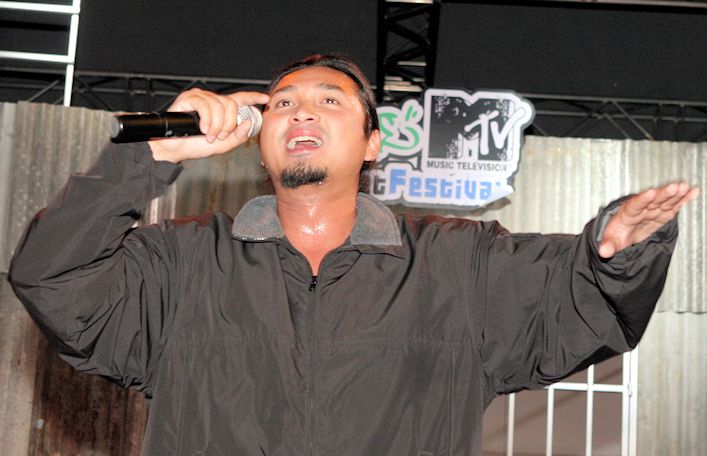
Abb.: Dajim (ดาจิม),
2996
[Bildquelle: Sry85 / Wikimedia. -- GNU FDLicense]
|
"Dajim (Thai: ดาจิม), real name Suwitcha Suphawira (Thai: สุวิชชา สุภาวีระ), (born January 15, 1977) is a Thai hip hop singer and rap artist. BiographyBefore entering the music industry, Dajim worked at his father's video store and as a sales clerk at Tower Records. He later teamed up with his friend DJ Dig-it-all to produce his first album, Hip Hop Underworld, and to start an underground record label, N.Y.U. Club. He began working as a DJ on Khao San Road (ถนนข้าวสาร) around this time. ControversyThe offensive content of Dajim's songs led to his arrest in September 2001 under the controversial "social order" policies (Thai: จัดการระเบียบสังคม) of then-Interior Minister Purachai Piumsombun (ปุระชัย เปี่ยมสมบูรณ์, 1950 - ). In particular, the song Sueak Thammai (Why bothers?) (Thai: เสือกทำไม) became something of an anthem for club DJs in protest of new early closure laws, who would blast the song when authorities came to shut them down for the night. As a result, sale of his two independently-released albums was forbidden. He joined GMM Grammy's subsidiary label Genie Records in 2002, and released his third album, Rap Thai (แร็พไทย) ,that same year. When his early albums began to resurface for sale at Pantip Plaza (พันธุ์ทิพย์พลาซ่า) and other locations, Dajim was arrested again in April 2002, but he claimed that this distribution was done without his consent or knowledge, and was either counterfeit goods or leftover stock of the banned albums.[1] Da Jim is best friends with the Swedish singer/songwriter Alea Karin, they met in Bangkok in 2009. She describes him as the big brother she never had." [Quelle: http://en.wikipedia.org/wiki/Dajim. -- Zugriff am 2013-04-09] |
2001-09-01

Eröffnung des vom Mönch Phra Thammongkolyarn (พระธรรมมงคลญาณ, damals: Phra Tepjetiyajarn - พระเทพเจติยาจารย์, 1920 - ) gegründeten Chanapatana International Design Institute (CIDI - สถาบันออกแบบนานาชาติชนาพัฒน์). 35 Studierende im ersten Jahrgang.
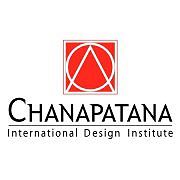
Abb.: ®Logo
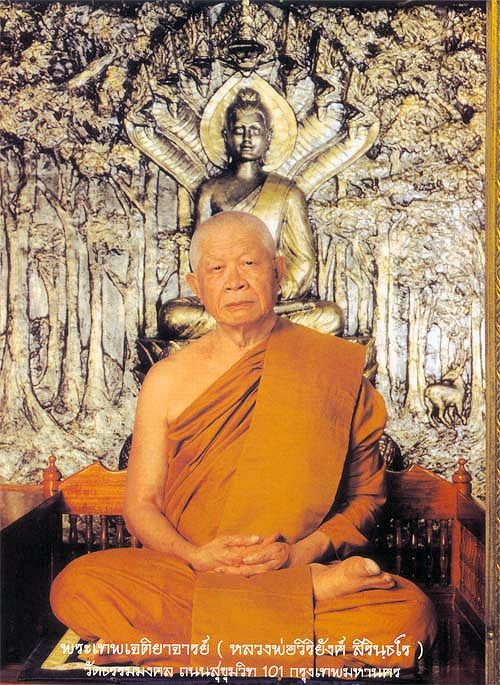
Abb.: Phra
Tepjetiyajarn - พระเทพเจติยาจารย์)
[Bildquelle: Thanit / th.Wikipedia. -- GNU
FDLicense]
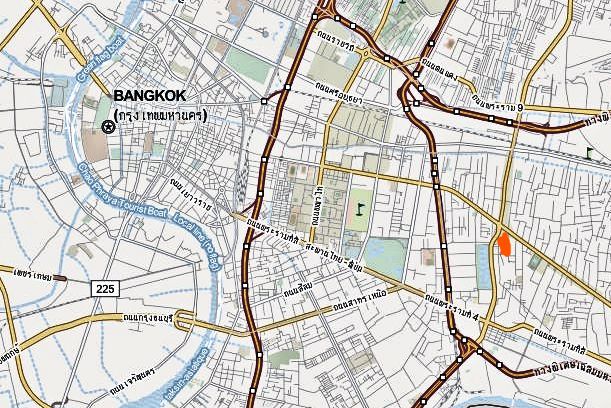
Abb.: Lage
des Chanapatana International Design Institute (CIDI -
สถาบันออกแบบนานาชาติชนาพัฒน์)
[Bildquelle: OpenStreetMap. --
Creative
Commons Lizenz (Namensnennung, share alike)]
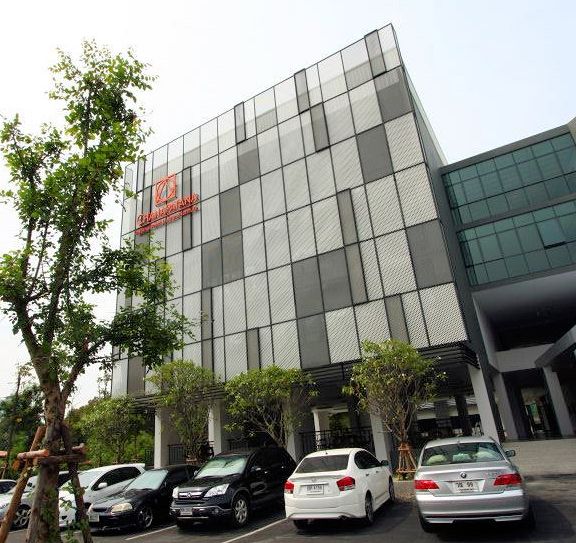
Abb.:
Chanapatana International Design Institute (CIDI -
สถาบันออกแบบนานาชาติชนาพัฒน์), 2012
[Bildquelle: Merlin TG / th.Wikipedia. --
keine Angaben zum Copyright]
|
"Chanapatana International Design Institute (CIDI ; Thai: สถาบันออกแบบนานาชาติชนาพัฒน์) is one of the first international schools of design in Thailand. It was founded in 2000 by The Venerable Phra Thepjetiyajan (พระเทพเจติยาจารย์, 1920 - ) in co-operation with Academia Italiana, the leading design school in Florence, Italy.[1] Operating under Luangphor Viriyang Sirinthara Foundation, the school offers two international diploma programs:
[Quelle: http://en.wikipedia.org/wiki/Chanapatana_International_Design_Institute. -- Zugriff am 2013-04-21] |
2001-09-03
Tod von Jaran Manopetch (จรัล มโนเพ็ชร, geb. 1955). Er ist ein populärer Sänger nordthailändischer Lieder. Er machte als erster Nord-Thaimusik in ganz Thailand beliebt.
Künstlerlink auf Spotify:
URI: spotify:artist:0UlBSF0yRVV3QUSZ3yYemW
URL: https://open.spotify.com/artist/0UlBSF0yRVV3QUSZ3yYemW
Abb.: Jaran Manopetch (จรัล มโนเพ็ชร)
[Bildquelle: th.Wikipedia. -- Fair use]
2001-09-11

Terroranschläge auf das World Trade Center (WTC) in New York (USA) und das Pentagon in Washington DC (USA). Unter den Opfern sind auch zwei Thais.
Abb.: Lage von New York und Washington DC
[Bildquelle: OpenStreetMap. -- Creative Commons Lizenz (Namensnennung, share alike)]
Abb.: Reste des World Trade Center, 2001-09-17
[Bildquelle: U.S. Navy photo by Chief Photographer's Mate Eric J. Tilford / Wikimedia. -- Public domain]
2001-09-13
Hua Hin (หัวหิน): First King's Cup Elephant Polo Tournament
2001-09-28
Premiere des Films Jan Dara (จัน ดารา) von Nonzee Nimibutr (นนทรีย์ นิมิบุตร, 1962 - ).
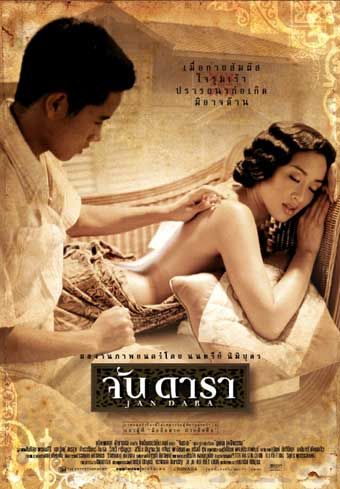
Abb.: Plakat
[Bildquelle: th.Wikipedia. -- Fair use]
|
"Jan Dara (Thai: จัน ดารา) is a 2001 Thai erotic-period-drama film directed and co-written by Nonzee Nimibutr (นนทรีย์ นิมิบุตร, 1962 - ) and co-starring Hong Kong cinema actress Christy Chung (鍾麗緹, 1970 - ). It is based on a novel by Utsana Phloengtham (อุษณา เพลิงธรรม, 1920 - 1987). The film premiered at the 2001 Toronto International Film Festival. In Thailand, the film was controversial because its sex scenes tested the censorship bounds of the 1930 Film Act. PlotJan (จัน) is a boy growing up in 1930s Siam in a wealthy, dysfunctional family where sex has a huge impact on everyone's lives. Jan Dara is viewed by his father, Khun Luang (หลวงวิสนันทเดชา), as cursed, since his mother died giving birth to him. The abusive Luang is a womanizer who has sex with many women in front of the portrait of his late wife. The younger sister of Jan's mother, Aunt Waad (วาด), is brought in to care for Jan. Luang has sexual relations with her, which causes young Jan to be jealous, since he has developed feelings for Waad. Waad and Luang have a daughter, Kaew (แก้ว), who is the apple of Luang's eye. From the beginning, he teaches her to hate the "bastard Jan". Waad, in return, treats Jan like her own son and despises Kaew. Later, another of Khun Luang's women, the sophisticated nymphomaniac Boonlueang (บุญเลื่อง), moves into a guesthouse on the estate, and she teaches Jan his first lessons in the ways of love. Jan is then framed for the rape of Kaew, who was having relations with the son of one of the family's maids. But it is Jan who ends up punished for Kaew's transgressions. Later, it emerges that Kaew is pregnant, with the seed of her own father. To smooth over the damage to the family's reputation, Jan is asked to return to the family estate and is forced into an arranged marriage with his half-sister Kaew. He does so, as long as he is promised the deed to the estate, which he views as a form of vindication against his father for the abuse he endured from him during his childhood. Kaew gives birth to Luang's child and curses it after it has emerged from her womb. The child displays classic dysmorphic features found in genetic mutations such as trisomy 21, commonly known as Down's syndrome. Kaew, meanwhile, enters into a lesbian relationship with Boonlueang. When Jan discovers this, he demands that Kaew give him his own child and forces himself upon her repeatedly. Kaew becomes pregnant with Jan's child but she refuses to have the baby she is carrying, and with Boonlueang's assistance, performs a bloody, self-administered abortion. Jan subsequently finds himself repeating the libidinous patterns of his father, going as far as to have sex with a maid in his father's sitting room, in front of the portrait of his mother. Jan wonders why he can't escape the cycle of sexual abuse started by his father. Then it is revealed that Jan is the product of a gang rape of his mother. Cast
In addition to its premiere at the 2001 Toronto International Film Festival, Jan Dara has also screened at the Vancouver International Film Festival, London Film Festival, Pusan International Film Festival (부산국제영화제), International Film Festival Rotterdam and the San Francisco International Asian American Film Festival. DVD releaseThe DVD, with English subtitles, has been issued by Kino International (Region 1) and in Thailand by APS (Region 3)." [Quelle: http://en.wikipedia.org/wiki/Jan_Dara_%282001_film%29. -- Zugriff am 2013-03-19] |
2001-10-02
ไทยโพสต์ [Thai Post]: คนเดือนตุลาเมื่อฟ้าสีทอง? [Golden skies for Octobrists?] / von เกรียงกมล เลาหไพโรจน์ [Kriangkamol Laohapairoj]
"No one knows how this government is going to turn out. But at least Thaksin himself is a capable person. He was ready to accept new ideas and push forward change. He was really different from earlier politicians and prime ministers. For instance, the thirty-baht free medical scheme was actually proposed by academics in the Ministry of Public Health. But no previous ministers listened to this. When the TRT [Thai Rak Thai - พรรคไทยรักไทย], Prommin [Prommin Lertsuridej - พรหมินทร์ เลิศสุริย์เดช, 1954 - ], and Surapong [Surapong Suebwonglee - สุรพงษ์ สืบวงศ์ลี, 1957 - ] proposed it, Thaksin immediately accepted the idea. I do not mean that Thaksin is a good person who sympathizes with poor people. But at least he accepted all these ideas.... But whenever he stops accepting our good proposals, we will no longer stay with him." [Übersetzung: Kanokrat Lertchoosakul [กนกรัตน์ เลิศชูสกุล]: The rise of the Octobrists in contemporary Thailand : power and conflict among former left-wing student activists in Thai politics. -- New Haven : Yale University Southeast asia Studies, 2016. -- 364 S. 23 cm. -- (Yale Southeast Asia studies ; monograph 65). -- ISBN 9780985042943. -- Zugl. The London School of Economics and Political Science, thesis 2012-09. -- S. 211. -- Fair use]
2001-10-07
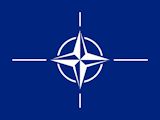
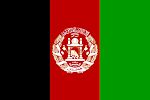
Beginn der Operation Enduring Freedom (= Krieg) der NATO unter Führung der USA in Afghanistan.
Abb.: Lage von Afghanistan
[Bildquelle: OpenStreetMap. -- Creative Commons Lizenz (Namensnennung, share alike)]
Abb.: Ausweitung der Einflussgebiete der Aufständischen von 2002 bis 2006
[Bildquelle: Sommerkom / Wikipedia. -- GNU FDLicense]


Afghanistan wird nun zum wichtigsten Opiumproduzenten der Welt und führt zur ziemlichen Bedeutungslosigkeit des Goldenen Dreiecks für die Opiumproduktion (2007 nur noch 5% der Weltopiumproduktion).
Abb.: Anbauflächen für Opium (Schlafmohn - Papaver somniferum L.) im Goldenen Dreieck (Myanmar, Laos) und in Afghanistan, 1996 - 2010
[Datenquelle: World Drug Report 2011]
Abb.: Preis für 1 kg Opium in Laos, 2002 - 2010
[Datenquelle: World Drug Report 2011]
2001-10-10

Die Democracy Federation fordert die Kündigung eines Abkommens mit den USA, das US-Militärflugzeugen die Benutzung des Militärflughafens U-Tapao (อู่ตะเภา) Royal Thai Navy Base erlaubt, ohne dass der Zweck angegeben werden muss. Die Protest-Gruppe befürchtet, dass Thailand so in einen Krieg gegen Afghanistan hineingezogen wird.
Lage der U-Tapao (อู่ตะเภา) Royal Thai Navy Airfield
[Bildquelle: OpenStreetMap. -- Creative Commons Lizenz (Namensnennung, share alike)]
2001-10-16
Erstausgabe der Tageszeitung Kom Chad Luek (คมชัดลึก)
Abb.: Kom Chad Luek (คมชัดลึก). -- 2011-03-22
2001-10-20/21

Gipfeltreffen der APEC (Asia-Pacific Economic Cooperation) in Shanghai (上海, China). Es treffen sich u. a. US-Präsident George W. Bush und Chinas Staats- und Parteichef Jiang Zemin (江泽民).
Abb.: Lage von Shanghai (上海, China)
[Bildquelle: OpenStreetMap. -- Creative Commons Lizenz (Namensnennung, share alike)]
Abb.: US-Präsident George W. Bush und Chinas Staats- und Parteichef Jiang Zemin (江泽民) beim APEC-Treffen, 2001-10-19
[Bildquelle: White House photo by Eric Draper / Wikipedia. -- Public domain]
2001-11
Ministerpräsident Thaksin erklärt, dass der Konflikt in Südthailand gelöst sei.
2001-11
Das Gesundheitsministerium gibt bekannt, dass es in Thailand 2,65 Mio Drogennutzer (4% der Bevölkerung) gibt, davon haben 91% mindestens einmal Methamphetamin (Ya Ba [ยาบ้า]) zu sich genommen.
2001-11
Erste Kurse an der Sirindhorn International Thai-German Graduate School of Engineering (TGGS) (บัณฑิตวิทยาลัย วิศวกรรมศาสตร์นานาชาติสิรินธร ไทย-เยอรมัน)
Abb.: ®Logo
Abb.: Lage des Sirindhorn International Thai-German Graduate School of Engineering (TGGS) (บัณฑิตวิทยาลัย วิศวกรรมศาสตร์นานาชาติสิรินธร ไทย-เยอรมัน)
[Bildquelle: OpenStreetMap. -- Creative Commons Lizenz (Namensnennung, share alike)]
"About TGGS The Sirindhorn International Thai-German Graduate School of Engineering (TGGS) is a public-private partnership established with strong support from the Thai and German government for engineering education, technology, innovation, and business development in Thailand and South-East Asia. Its industry-oriented engineering master and doctorate education concept combines teaching and research based on the successful model of RWTH-Aachen University, Germany, one of Europe's leading technical university.
Mission1. To educate engineering graduates for industrial needs with international standards
Vision
2. To create networking with top universities around the world
3. To produce innovative research for industrial needs
4. To proactively manage organization under good governance
5. To provide engineering services for society with international standards
6. To be a learning-based organizationLeading international graduate school of engineering for industrial research.
HistoryFollowing almost 50 years of Thai-German cooperation in King Mongkut’s University of Technology North Bangkok (KMUTNB), TGGS is now the living continuation of this long lasting partnership. KMUTNB, the partner to the Rheinisch-Westfaelische Technische Hochschule Aachen (RWTH Aachen) in developing TGGS, has over many years adopted elements of the German system and has grown up to be a university since 1986. Today, KMUTNB is one of the larger technical universities in Thailand with more than 20,000 students. TGGS is an autonomous International Graduate School of Engineering within KMUTNB (Teaching in English) and has its own autonomous Thai-German administration.TGGS Milestones
- 1996: The letter of intent signed by RWTH Aachen on developing a new "Thai-German Graduate School of Engineering“ in Thailand based on the RWTH Aachen Model of engineering education.
- 1997: The core network between KMUTNB, RIT, RWTH Aachen, BMBF, MWF NRW, MUA Thailand, the Embassies and the first industrial sponsors was established.
- 1999: Signing a Memorandum of Understanding between RWTH Aachen, KMUTNB, RIT and DIHT with support in Bangkok through GTCC.
- 2001: Launching of the substantial project support through DAAD, RWTH-MWF target agreement, start of first M.Sc. courses at TGGS in November 2001.
- 2004: TGGS Contract of October 22 (25 Mio. EUR budget 2006-2011). The Foundation stone of the 11-story TGGS building was laid in November.
- Since 2005: Privilege of TGGS to carry the name of HRH Princess Maha Chakri Sirindhorn.
- Since Mid 2006: Transitional TGGS offices in KMUTNB New Research Building, also recruiting of own TGGS permanent academic staff.
- 2007: Completion of the TGGS building and move into new offices. TGGS Co. Ltd. registered in October 26. Purchasing of first basic equipment for TGGS.
- 2008: TGGS Co. Ltd. received its BoI Certificate in February 2008. The TGGS Autonomy and TGGS Council established officially in June 2008. The extension of labs and starting of R&D projects. Two Ph.D programs and 8 Master programs were started.
- 2009: Delivery of significant R&D equipment from RWTH Aachen to TGGS.
- 2011: The second agreement between RWTH Aachen and KMUTNB was signed (agreement contract from 2012-2015)."
[Quelle: http://tggs.kmutnb.ac.th/about-tggs/about. -- Zugriff am 2016-01-03. -- Fair use]
2001-11
GMM Grammy Public Company Limited (จีเอ็มเอ็ม แกรมมี่ / G"MM' Grammy) beginnt Lizenzgebühren zu erheben für Songs, die in Unterhaltunslokalen und dergl. aufgeführt werden.
2001-11
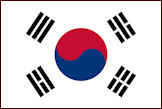
Thailandpremiere des koreanischen Films Il Mare (시월애) (2000) von Lee Hyun-Seung (이현승, 1961 - )
Abb.: Filmplakat
[Bildquelle: Wikipedia. -- Fair use]
2001-11-05
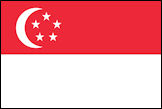
Parlamentswahlen in Singapur: die seit 1965 regierende People's Action Party (PAP, 人民行動黨 / Parti Tindakan Rakyat / மக்கள் செயல் கட்சி) von Ministerpräsident Goh Chok Tong (吴作栋, 1941 - ) gewinnt überwältigend (82 Sitze). Die Opposition gewinnt nur 2 Sitze.
Abb.: ®Logo der People's Action Party
Abb.: Lage von Singapur
[Bildquelle: OpenStreetMap. -- Creative Commons Lizenz (Namensnennung, share alike)]
2001-11

Konferenz der World Trade Organization in Doha (Katar).
Abb.: ®Logo
[Bildquelle: Wikipedia]
Abb.: Lage von Doha (الدوحة) (Katar - قطر)
[Bildquelle: OpenStreetMap. -- Creative Commons Lizenz (Namensnennung, share alike)]
"Als Doha-Runde oder auch Doha-Entwicklungsagenda (engl.: Doha Development Agenda, DDA) wird ein Paket von Aufträgen bezeichnet, die die Wirtschafts- und Handelsminister der WTO-Mitgliedstaaten 2001 auf ihrer vierten Konferenz in Doha bearbeiten und bis 2005 abschließen sollten. Das Arbeitsprogramm umfasste sowohl formelle Verhandlungen wie auch Aufträge zur Analyse spezieller Einzelthemen. Zu einem Verhandlungsabschluss kam es aber aufgrund unterschiedlicher Ansichten der WTO-Mitglieder bisher nicht. Nachdem die Ministerkonferenz in Cancún 2003 keine Annäherung brachte, wurden die Verhandlungen unterbrochen und zunächst im Juli 2004 wieder aufgenommen. Ende Juli 2006 wurden die Verhandlungen auf Vorschlag von WTO-Generaldirektor Pascal Lamy suspendiert, da sich die Verhandlungspartner nicht über die Liberalisierung des Agrarhandels verständigen konnten. Die im Februar 2007 erneut aufgenommenen Verhandlungen scheiterten. Auch der vierte Anlauf im Juli 2008 scheiterte nach einer Einigung in 18 von 20 Verhandlungspunkten an unvereinbaren Positionen bei einem verbleibenden Punkt der Agrarpolitik.[1] Weltweit bedauerten Regierungs- und Wirtschaftsvertreter das Scheitern der Verhandlungen. Die WTO-Staaten hatten sich von einer Einigung in dieser Welthandelsrunde ein um bis zu 100 Milliarden US-Dollar höheres Welthandelsvolumen versprochen, von denen größtenteils die Entwicklungsländer profitieren würden.
Angesichts der weltweiten Finanzkrise wurde vom Weltfinanzgipfel im November 2008 in Washington die beschleunigte Wiederaufnahme der Welthandelsgespräche beschlossen.[2] Dies wurde vom kurz darauf stattfindenden APEC-Gipfel unterstützt.[3]
Zentrale VerhandlungsproblemeAls Ziel der Doha-Runde wurde ausgegeben, Probleme der Entwicklungsländer zu berücksichtigen, die (Stand: 2001) 29 % des Welt-Exports leisteten.
Insbesondere stehen folgende Themenbereiche auf der Agenda:
Im Agrarsektor fordern die Entwicklungsländer einen besseren Marktzugang für ihre Produkte in den Industrieländern durch den Abbau von Importquoten und Zöllen sowie die Reduzierung der Subventionen im Agrarsektor der Industriestaaten.
Auch verschiedene Fragen des geistigen Eigentums sollen neu verhandelt werden. Insbesondere bei Medikamenten ist das Patentrecht sehr umstritten: Während die Befürworter seine Anreizfunktion für die Forschung und Entwicklung unterstreichen, legen die Kritiker das Augenmerk auf die für Entwicklungsländer oft prohibitiv hohen Preise der Medikamente. Die Industrieländer, insbesondere die USA, fordern daher eine eng begrenzte Patentschutzöffnung, während einige Entwicklungsländer notwendige Medikamente auch ohne Beachtung des Patentschutzes herstellen und vertreiben wollen. Außerdem versuchen sie, die Patentierung von traditionellem Wissen ihrer Bevölkerung durch Konzerne der Industriestaaten zu verhindern.
Verschiedene Sonderregelungen für Entwicklungsländer werden diskutiert: Neue Verpflichtungen sollen erst dann gültig werden, wenn die alten erfüllt sind. Sonderregelungen zur Schritt-für-Schritt-Integration schwächerer Staaten sollen geschaffen werden. Folgende Bereiche sind weiterhin Problemfälle:
Institutionelle Anforderungen
- Agreement on Textiles and Clothing (ATC)
- Standardisierung
- TRIPS (geistiges Eigentum)
- Zollwertbestimmung
Problematisch ist, dass es nur wenige aktive Mitglieder gibt: So ist einerseits die Quad-Gruppe (USA, EU, Japan, Kanada) beteiligt. Neben diesen Industrieländern sind lediglich etwa 30 Staaten beteiligt, unter anderem die Schwellenländer Mexiko, Brasilien, Argentinien, Südafrika, Ägypten, Indien, Südkorea, Philippinen, Thailand.
Die Mehrheit der Mitglieder kann aufgrund von Finanz- und Kapazitätsproblemen an der Arbeit nicht teilnehmen.
Da die Unterstützung dieser Mitglieder nötig ist, wurde von der WTO der Global Trust Fund eingerichtet. Dieser Fonds soll Entwicklungsländern technische Hilfe anbieten, damit diese aktiv am Welthandel teilnehmen können. Bei der Doha-Runde wurde die Doha Development Agenda aufgestellt. Durch sie sollen bis zum Januar 2005 unter anderem Bereiche wie Landwirtschaft, Dienstleistungen und Marktzugang zugunsten der Entwicklungsländer liberalisiert werden."
[Quelle: http://de.wikipedia.org/wiki/Doha-Runde. -- Zugriff am 2012-01-01]
2001-11-26

Seine Majestät, der König erhält vom World Boxing Council die höchste je vergebene Ehrung, "The Golden Shining Symol of World Leadership".
THE GOLDEN SHINING SYMBOL
OF
WORLD LEADERSHIPTHIS IS THE HIGHEST EVER HONOUR
GIVEN BY THE WORLD BOXING COUNCIL
TO ANYONE IN THE WORLD. IT IS TO
MARK THE EMINENT AND EXALTED
LEADERSHIP DISPLAYED BY HIM
OVER THE PAST 56 YEARS,
AND FOR ALL WHAT HE HAS DONE
FOR SPORTS, ESPECIALLY BOXING.
THE WBC HAS NOTED THAT IT WAS
DUE TO HIS PRESENCE AND INSPIRATIONAL
PRESENCE, AT THE LUMPINI STADIUM
ON APRIL 16, 1960
THAT THAILAND OPENED
A COLOURFUL AND A GLORIOUS ERA IN
THE SPORT THROUGH PONE KINGPETCH, THE
KINGDOM'S FIRST WORLD CHAMPION.
NOT ONLY WAS HIS MAJESTY THE FIRST
MONARCH TO GRACE A WORLD TITLE FIGHT
HE STIMULATED AND SPARKED AN
OUTSTANDING INTEREST AMONG THAIS IN
PARTICULAR AND ASIANS IN GENERAL FOR
BOXING. THE WBC, ESPECIALLY ITS
PRESIDENT DR: JOSE SULAIMAN HAS
FOLLOWED WITH GREAT INTEREST
OVER THE YEARS HIS MAJESTY'S
CONTRIBUTION TO HELP YOUTH
OF THE WORLD TO PROGRESS
AND PROSPER AS FUTURE LEADERS
IN ALL ASPECTS OF LIFE TAKING
THESE AND MANY OTHER FACTORS
INTO CONSIDERATION
THE WBC IS MAKING THIS UNIQUE
AWARD TO MARK THE OUTSTANDING
AND SIGNIFICANT CONTRIBUTIONS
HIS MAJESTY HAS MADE TO THE WORLD
2001-11-26 - 2004-12-28

Darryl N. Johnson (1938 - ) ist US-Botschafter in Thailand.
Abb.: Darryl N. Johnson, 2004
[Bildquelle: Joann S. Makinano, U.S. Air Force / Wikipedia. -- Public domain]
2001-11-30
Premiere des Films Body Jumper (ปอบ หวีด สยอง) von Haeman Chatemee (Thai:เหมันต์ เชตมี)
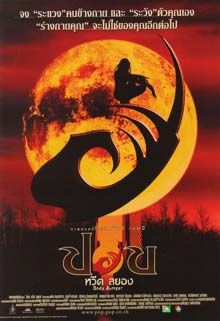
Abb.: Plakat
[Bildquelle: Wikipedia. -- Fair use]
|
"Body Jumper (Thai: ปอบ หวีด สยอง, or Pop Weed Sayong) is a 2001 Thai horror/comedy film directed by Haeman Chatemee (เหมันต์ เชตมี) and written by Pakphum Wonjinda (ภาคภูมิ วงศ์จินดา, 1965 - ). PlotIn 1932 Siam (สยาม), a ravenous female ghost named Pop (ปอบ) is ravaging the village of Sam Kotr, Roi Et (ร้อยเอ็ด) ), killing all the men. An exorcist is brought in, and he wraps the ghost in magical rope, which should bind her forever, or so it is thought. Flash forward to 2000, it is the start of a new school term, and a group of university students have arrived from Bangkok to take part in a rural development project in Sam Kotr. Some of the boys spy on their beautiful female classmate, Ker (เกอร์), while she is bathing in the river. Accidentally, they break open a sealed well and unknowingly release the ancient ghost Pop. The ghost possesses Ker, and when the students return to the capital, the spirit is with them. Inhabiting Ker, the ghost becomes hungry again, turning Ker into a nymphomaniac. She cannot get enough men. Ker invites one classmate out for a date. Making out in the car after a movie, she transforms into the demon ghost and runs her hand into the man's body. He survives, but it is later revealed that his liver is gone. Ker's friends notice a change in her behavior, especially after she uses her long tongue to clean a plate of liver, and she transforms into the scary demon. Eventually a mysterious man named Com appears and shows the students how to dispatch the ghost by using condoms. But the spirit simply takes possession of other bodies, jumping from body to body in order to escape and survive. Kong then equips the students with a special camera and other weapons needed to combat the ghost. Cast
[Quelle: http://en.wikipedia.org/wiki/Body_Jumper. -- Zugriff am 2013-03-19] |
2001-12-06
Das staatliche Erdöl- und Erdgasunternehmen PTT Public Company Limited (ปตท.) geht an die Börse Stock Exchange of Thailand (SET, ตลาดหลักทรัพย์แห่งประเทศไทย). Die Nachfrage nach den Aktien ist groß.
Abb.: ®Logo
[Bildquelle: Wikipedia]
"PTT Public Company ist ein thailändisches Unternehmen mit Firmensitz in Bangkok. Das Unternehmen wird vom thailändischen Staat kontrolliert. PTT Public Company fördert und verkauft Erdöl und Erdgas an seine Kunden. Es besitzt ein Pipelinenetzwerk im Golf von Thailand und verfügt über ein landesweites Tankstellensystem. PTT Public Company ist nach Fortune Global 500 der größte thailändische Konzern." [Quelle: http://de.wikipedia.org/wiki/PTT_Public_Company. -- Zugriff am 2011-12-28]
2001-12-13 - 2006-12-12

Tuanku Syed Sirajuddin ibni Tuanku Syed Putra Jamalullail (1943 - ) ist König (Yang di-Pertuan Agong) von Malaysia
2001-12-14

Ministerpräsident Thaksin trifft in Washington DC US-Präsident George W. Bush. Er äußert seine Bedenken über amerikanische Forschung, den thailändischen Jasminreis (ข้าวหอมมะลิ) genetisch zu verändern und damit den Thai-Bauern Konkurrenz zu machen. (Die Vorfahren dieser Bauern haben in jahrhundertlanger Arbeit die thailändischen Reissorten entwickelt. Saatgutkonzerne stehlen dieses geistige Eigentum, verändern es unwesentlich und patentieren es.) Thaksin sagt Bush Thailands Unterstützung im Kampf gegen den Terrorismus zu.
Abb.: Vom Diebstahl durch Saatgutkonzerne bedroht: Jasminreis (ข้าวหอมมะลิ)
[Bildquelle: Henningklevjer / Wikipedia. -- Creative Commons Lizenz (Namensnennung, share alike)][Quelle des .mp4-Filmausschnitts aus der Pressekonferenz von Präsident George W. Busch und Ministerpräsident Thaksin: http://www.archive.org/details/Political_videos-GeorgeWBush20011214_5_946. -- Zugriff am 2012-03-13. -- Public domain]
2011-12-21
Premiere des Films Bangkok Haunted (ผีสามบาท) von Oxide Pang Chun (彭順, 1965 - ) und Pisut Praesangeam (พิสุทธิ์ แพร่แสงเอี่ยม)
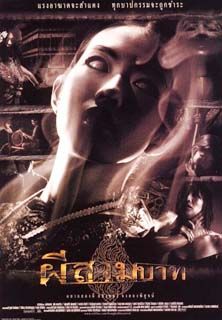
Abb.: Plakat
[Bildquelle: Wikipedia. -- Fair use]
|
"Bangkok Haunted (Thai: ผีสามบาท) is a 2001 Thai horror film compilation, directed by Oxide Pang (彭順, 1965 - ) and Pisut Praesangeam (พิสุทธิ์ แพร่แสงเอี่ยม). It is a trio of ghost stories, as told by three people sitting around in a darkened Bangkok bar. PlotLegend of the DrumAn antiques dealer discovers that a dancer's musical spirit possesses an old drum in her shop. Black Magic WomanA lonely young woman is given an aphrodisiac perfume. It is extracted from corpses. RevengeA police cadet searches for the truth behind a girl's suicide by hanging. Cast
At the time of its release in Thailand, Bangkok Haunted was the second-biggest grossing Thai horror film since Nang Nak (นางนาก) in 1999. The film was screened at the London Thai Film Festival on October 13, 2002. Reviewing the film at the festival, Variety critic Derek Elley noted the film's atmospheric stylistic touches and technique, saying the first segment, Legend of the Drum was the strongest in terms of storytelling. Black Magic Woman is "largely an excuse for soft-porn sequences between some yucky shocks", Elley wrote. He said Revenge has weak plot development and had an over-reliance on "flashy effects".[1] Bangkok Haunted was released on Region 2 DVD on March 24, 2003 by Tartan Video and on Region 1 DVD July 26, 2005 by Panik House Entertainment." [Quelle: http://en.wikipedia.org/wiki/Bangkok_Haunted#External_links. -- Zugriff am 2013-03-19] |
2001-12-27

Hundertschaften der Polizei und des Volunteer Defence Corps (Or Sor) (อส. = กองอาสารักษาดินแดน) überwachen die Schließung des Studenten-Flüchtlingslagers Maneeloy (มณีลอย), Provinz Ratchaburi (ราชบุรี), und die Übersiedlung der 393 Flüchtlinge ins Flüchtlingslager Tham Hin.
Abb.: Lage von Maneeloy (มณีลอย) und Tham Hin
[Bildquelle: http://www.shoklo-unit.com/MTF/map_refugee.php. -- Zugriff am 2012-09-30. -- Fair use]
2001-12-28
Premiere des Films Monrak Transistor (มนต์รักทรานซิสเตอร์, Transistor Love Story) von Pen-Ek Ratanaruang (เป็นเอก รัตนเรือง, 1962 - ). Er gilt als einer der bisher besten Thai-Filme. Er ist Thailands offizieller Kandidat für den Academy Award for Best Foreign Language Film 2002.
Abb.: Plakat
[Bildquelle: th.Wikipedia. -- Fair use]Der Film basiert auf den zusammengehörigen Songs
สุรพล สมบัติเจริญ [Suraphol Sombatcharoen, 1930 - 1968]: ลืมไม่ลง ["Nicht vergessen!]
Der Song auf Spotify:
URI: spotify:track:6QSaxF3UNiNnqUo3bYgvkJ
URL: https://open.spotify.com/track/6QSaxF3UNiNnqUo3bYgvkJผ่องศรี วรนุช [Pongsri Woranuch, 1939 - ] : ไหนว่าไม่ลืม ["Hast du mich vergessen?"]
Der Song auf Spotify:
URI: spotify:track:60GokFEcK4jyIjugOSuyD7
URL: https://open.spotify.com/track/60GokFEcK4jyIjugOSuyD7
Abb.: Covers späterer Ausgaben der Songs auf CD
"Monrak – Magische Liebe (thail. มนต์รักทรานซิสเตอร์ – Monrak Transistor) ist ein thailändischer Spielfilm aus dem Jahr 2001 nach der Romanvorlage von Wat Wanlayangkoon (วัฒน์ วรรลยางกูร). Handlung
Der Provinzsänger Phaen lebt für seine Musik. Bei einem seiner Auftritte lernt er die hübsche Sadao kennen. Die beiden kommen sich näher; Phaen findet eine Gelegenheitsarbeit in der Landwirtschaft ihres Vaters. Anfänglich wird Phaen von Sadaos Vater nicht akzeptiert, doch schließlich willigt dieser in die Hochzeit der beiden ein.
Als Sadao ihr erstes Kind erwartet, erhält Phaen die Nachricht, dass er zum Militärdienst eingezogen wird. So muss er bald darauf seine Familie zurücklassen, verspricht aber, regelmäßig zu schreiben. Als Phaen außerhalb der Kaserne in Bangkok das Werbeplakat eines Sängerwettbewerbs liest, beschließt er sofort daran teilzunehmen. Dem Gewinner winkt die Mitgliedschaft in einer berühmtem Popband. Tatsächlich erhält Phaen dann die Gelegenheit, sein eigenes Lied ohne Instrumentenbegleitung auf der Bühne vorzutragen. Das Publikum ist begeistert, und Phaen träumt schon von einer großen Karriere als Sänger. Phaen fällt einen folgenschweren Entschluss: er begeht Fahnenflucht, kehrt nicht mehr zu seiner Kaserne zurück; stattdessen bleibt er fortan in der Popschmiede.
Sein Manager verspricht ihm eine glänzende Karriere als Sänger und Reichtum. Aber Phaen muss ganz unten anfangen: Er darf anfangs nicht auf die Bühne, sondern muss den Fußboden schrubben. Als Phaen nach zwei Jahren Putzdienst und als Mädchen für alles immer noch nicht singen darf, spricht er bei seinem Manager vor. Dieser rät ihm zu Geduld und gibt die schlechte wirtschaftliche Lage als Begründung an.
Als Phaen eines Tages mit einer der hübschen Sängerinnen fremdgeht, ergibt sich für ihn wenig später die Gelegenheit, endlich auf der Bühne als Sänger aufzutreten. Das Publikum feiert ihn, und auch sein Manager ist von ihm begeistert, will Phaen berühmt machen.
Unterdessen plagen Sadao Sehnsuchtsgefühle nach ihrem Mann. Sie beschließt zusammen mit ihrem Vater nach Bangkok zu fahren, um Phaen endlich wiederzusehen. Als Phaen vor dem Publikum sein „Lied vom traurigen Rekruten“ vorträgt, ist auch Sadao und ihr Vater unter den Zuhörern. Sadao ist gerührt, da sie weiß, dass das Lied für sie geschrieben wurde.
Nach dem Ende des Konzerts bietet sich Sadao die Gelegenheit, ihren Mann kurz zu umarmen; Phaens Manager wartet bereits ungeduldig in seinem Wagen auf ihn. Er nimmt Phaen mit zu sich nach Hause und macht Fotos von seinem halbnackten Körper – unter dem Vorwand, ihn als Model zu vermitteln – und wird zudringlich. Phaen wehrt sich heftig und stößt ihn angewidert von sich. Der Mann fällt rücklings und verletzt sich tödlich an seinem Glastisch.
Phaen muss fliehen und trifft zufällig auf einen abfahrbereiten Bus, vollbesetzt mit Plantagenarbeitern. Er steigt ein und findet sich nach Ende der Fahrt als Arbeiter in einer Zuckerrohrplantage wieder. Ein Aufseher macht seinen Arbeitern die Arbeit schwer. Seine Leidenschaft ist das Glücksspiel. Als er beim Spiel mit einem seiner Arbeiter verliert, will er seine Spielschulden nicht bezahlen. Daraufhin beschimpft ihn jener Arbeiter als Hurensohn und handelt sich von ihm Prügel ein. Phaen, der Zeuge des Vorfalls ist, schlägt den Aufseher zu Boden und flieht mit seinem Freund vor dem Aufseher und seinen Schergen.
Den beiden gelingt die Flucht, sie finden sich jetzt aber mittellos in den Straßen von Bangkok wieder. Phaen und sein Freund mischen sich unter die feine Gesellschaft eines Kostümballs, werden aber bald entlarvt und hinausgeworfen. Als sie einer Passantin auf der Straße den Schmuck stehlen, ist die Polizei hinter ihnen her. Sein Freund kann erfolgreich fliehen und untertauchen, aber Phaen wird in einen Verkehrsunfall verwickelt und kurz darauf verhaftet.
Wegen Fahnenflucht und Diebstahl muss Phaen für mehrere Jahre im Straflager verbringen. Nach Verbüßung seiner Haftstrafe will er nur noch zurück nach Hause, zu seiner Frau und seinem Kind. Auf der Straße trifft er seinen Freund, der jetzt sein eigenes Geschäft betreibt und Phaens frühere Geliebte, die Sängerin, zur Frau genommen hat.
Phaen kehrt nach Hause zurück und trifft seine Frau auf der Melonenplantage. Diese will aber nichts mehr von ihm wissen, hat ihn bereits für „tot“ erklärt. Aber Phaen bereut alles, was er getan hat, und es gelingt ihm schließlich, die Liebe seiner Frau zurückzugewinnen.
Hintergrund [Bearbeiten]„Die erst satirische, dann zunehmend dramatische Story ist einem ermordeten thailändischen Popstar der 60er gewidmet.“
– TV Spielfilm
Filmdaten Deutscher Titel Monrak – Magische Liebe Originaltitel มนต์รักทรานซิสเตอร์
(Monrak Transistor)Produktionsland Thailand Originalsprache Thailändisch Erscheinungsjahr 2001 Länge 115 Minuten Altersfreigabe FSK – Stab Regie Pen-Ek Ratanaruang - เป็นเอก รัตนเรือง Drehbuch Pen-Ek Ratanaruang - เป็นเอก รัตนเรือง
Wat Wanlayangkoon - วัฒน์ วรรลยางกูรProduktion Nonzee Nimibutr - นนทรีย์ นิมิบุตร
Duangkamol Limcharoen - ดวงกมล ลิ่มเจริญMusik Amornbhong Methakunavudh - อมรพงศ์ เมธาคุณวุฒิ
Chartchai Pongprapapan - ชาติชาย พงษ์ประภาพันธ์Kamera Chankit Chamnivikaipong - ชาญกิจ ชำนิวิกัยพงศ์ Schnitt Patamanadda Yukol - ปัทมนัดดา ยุคล Besetzung
- Siriyakorn Pukkavesa - ชาญกิจ ชำนิวิกัยพงศ์: Sadao (สะเดา)
- Suppakorn Kitsuwan - ศุภกรณ์ กิจสุวรรณ: Phaen (แผน)
- Porntip Papanai - พรทิพย์ ปาปะนัย: Dao (ดาว)
- Prasit Wongrakthai - ประสิทธิ์ วงษ์รักไทย: Sadaos Vater (ตาเฉย)
- Black Pomtong - แบล็ค ผมทอง: Yod (หยอด)
- Somlek Sakdikul - สมเล็ก ศักดิกุล: Suwat (สุวัตร)
- Chartchai Kamnuansak - ฉัตรชัย คำนวนศักดิ์: Gefängniswärter (ผู้คุมนักโทษ)
[Quelle: http://de.wikipedia.org/wiki/Monrak_%E2%80%93_Magische_Liebe. -- Zugriff am 2011-12-26]
2001-12-31
Die Thai Journalists Association (สมาคมนักข่าว นักหนังสือพิมพ์แห่งประเทศไทย) ernennt 2001 zum "year of media interference". Ministerpräsident Thaksin hat nicht nur sein wirtschaftliches Medienmonopol dazu missbraucht, missliebige Journalisten zu entlassen, sondern auch Zeitungsherausgeber davor gewarnt, Berichte über sein Vermögen und dessen Verschleierung zu bringen.
ausführlich: http://www.payer.de/thailandchronik/ressourcen.htm
Zu Chronik 2002 / B. E. 2545. -- 1. undatiert